Filter by

The future of financial systems in the digital age
This book is open access, which means that you have free and unlimited access. The increasing capacity of digital networks and computing power, together with the resulting connectivity and availability of “big data”, are impacting financial systems worldwide with rapidly advancing deep-learning algorithms and distributed ledger technologies. They transform the structure and performance o…
- Edition
- -
- ISBN/ISSN
- 9789811678301
- Collation
- xxiv, 190p ; ill
- Series Title
- -
- Call Number
- 332.1094 HEC t
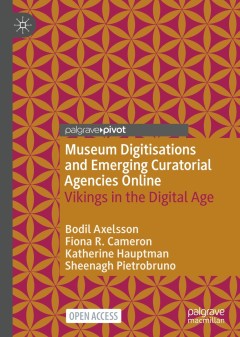
Museum digitisations and emerging curatorial agencies online : vikings in the…
This open access book explores the multiple forms of curatorial agencies that develop when museum collection digitisations, narratives and new research findings circulate online. Focusing on Viking Age objects, it tracks the effects of antagonistic debates on discussion forums and the consequences of search engines, personalisation, and machine learning on American-based online platforms. Furth…
- Edition
- -
- ISBN/ISSN
- 9783030806460
- Collation
- xv, 138p ; ill
- Series Title
- -
- Call Number
- 069.53 MUS m
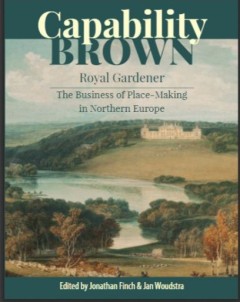
Capability brown, royal gardener : the business of place-making in northern e…
Lancelot “Capability” Brown was one of the most influential landscape designers of the eighteenth-century at a time when Britain was changing radically from an agrarian to an industrial and colonial nation, whilst Europe was periodically convulsed by war and revolution. The extent and nature of his influence are, however, fiercely debated. Brown worked at hundreds of important sites across …
- Edition
- edision 23
- ISBN/ISSN
- 9781912482252
- Collation
- vii. :ill. ;215 p.
- Series Title
- -
- Call Number
- 712.092. JON
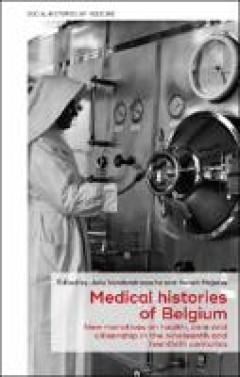
Medical histories of Belgium : new narratives on health, care and citizenship…
This edited volume offers the first comprehensive historical overview of the Belgian medical field in the nineteenth and twentieth centuries. Its chapters develop narratives that go beyond traditional representations of medicine in national overviews, which have focused mostly on stateprofession interactions. Instead, the chapters bring more complex histories of health, care and citizenship. Th…
- Edition
- -
- ISBN/ISSN
- 9781526151087
- Collation
- xiv, 400 p. : ill.
- Series Title
- -
- Call Number
- 610.9493 VAN m
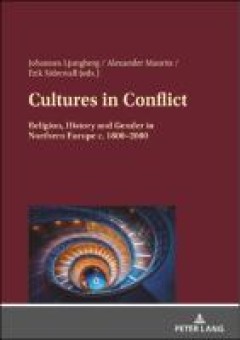
Cultures in conflict : religion, history and gender in Northern Europe c. 180…
This book includes studies of main conflict areas in modern Western societies where religion has been a central element, ranging from popular movements and narratives of opposition to challenges of religious satire and anti-clerical critique. Special attention is given to matters of politics and gender. With this theme, it provides a useful guide to conflict areas in modern European religious h…
- Edition
- -
- ISBN/ISSN
- 9783631847312
- Collation
- 222 p.
- Series Title
- -
- Call Number
- 274 ALE c
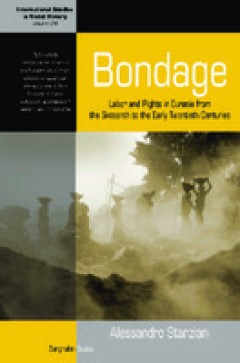
Bondage : labor and rights in eurasia from the sixteenth to the early twentie…
For the first time, this book provides the global history of labor in Central Eurasia, Russia, Europe, and the Indian Ocean between the 16th and 20th centuries. It contests common views on free and unfree labor, comparing the latter to many Western countries where wage conditions resembled those of domestic servants. This gave rise to extreme forms of dependency in the colonies, not only under …
- Edition
- -
- ISBN/ISSN
- 9781785336607
- Collation
- ix. ;270 p.
- Series Title
- -
- Call Number
- 331.0950903 ALES b
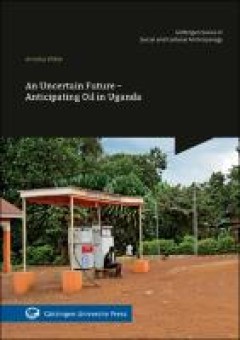
An uncertain future : anticipating oil in Uganda
The discovery of oil in Uganda in 2006 ushered in an oil-age era with new prospects of unforeseen riches. However, after an initial exploration boom developments stalled. Unlike other countries with major oil discoveries, Uganda has been slow in developing its oil. In fact, over ten years after the first discoveries, there is still no oil. During the time of the research for this book between 2…
- Edition
- -
- ISBN/ISSN
- 9783863953607
- Collation
- 277 p. : ill.
- Series Title
- -
- Call Number
- 330 WIT a
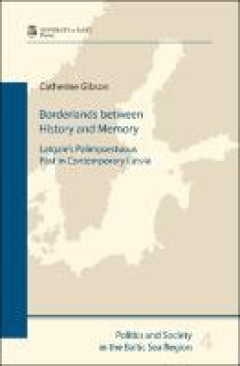
Borderlands between history and memory : latgale's palimpsestuous past in con…
This book offers innovative perspectives on the intersections between history and memory in Central and Eastern European borderlands. It focuses on the case of Latgale, the multicultural region of eastern Latvia which borders Russia, Belarus and Lithuania, and explores the multiple layers of memories and historical narratives about this borderland in Latvian public history. Based on a detailed …
- Edition
- -
- ISBN/ISSN
- 9789949772964
- Collation
- 192 p.
- Series Title
- -
- Call Number
- 504.9.L37 CAT b
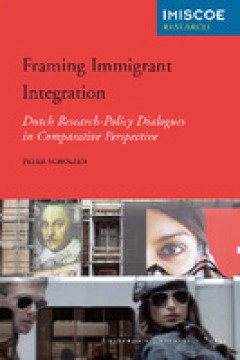
Framing immigrant integration : Dutch research-policy dialogues in comparativ…
Debates on immigrant integration are often caught up in what academics and politicians like to call 'national models of integration'. Researchers and policymakers long for common ground. In the Netherlands, their symbiosis is fed by multiculturalism, something for which Dutch society has long been seen as exemplary. Still, the incorporation of migrants remains one of the country's most pressing…
- Edition
- -
- ISBN/ISSN
- 9789048513604
- Collation
- 320 p.
- Series Title
- -
- Call Number
- 325.492 SCH f
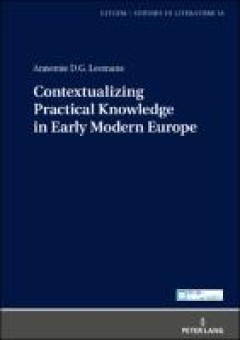
Contextualizing practical knowledge in early modern Europe
The topic of this book is practical knowledge in early modern Europe, interpreted widely as recipes containing art procedures or medical panaceas between 1400 and 1700. In this book, the 1) origin or creation, 2) transmission or dissemination, and 3) use or consumption are key subjects for understanding the place of practical knowledge in early modern European society. After a historiographical…
- Edition
- -
- ISBN/ISSN
- 9783631788912
- Collation
- 317 p. : ill.
- Series Title
- -
- Call Number
- 809.024 LEE c
 Computer Science, Information & General Works
Computer Science, Information & General Works  Philosophy & Psychology
Philosophy & Psychology  Religion
Religion  Social Sciences
Social Sciences  Language
Language  Pure Science
Pure Science  Applied Sciences
Applied Sciences  Art & Recreation
Art & Recreation  Literature
Literature  History & Geography
History & Geography